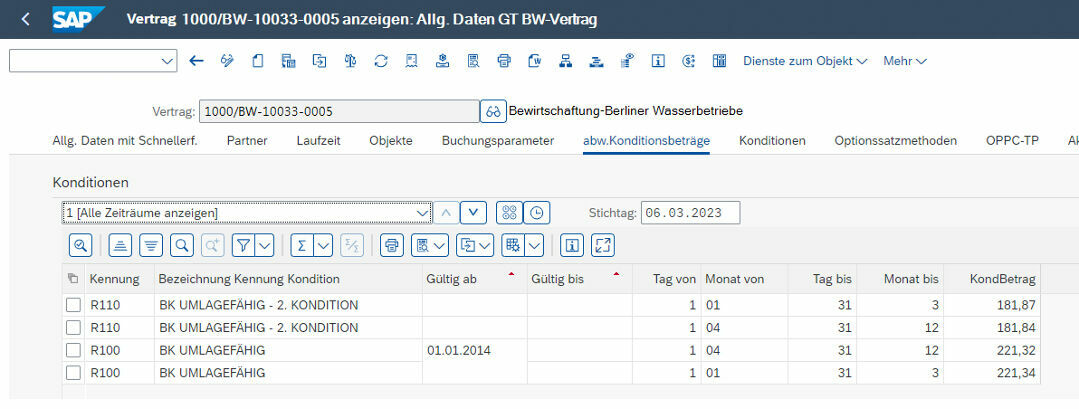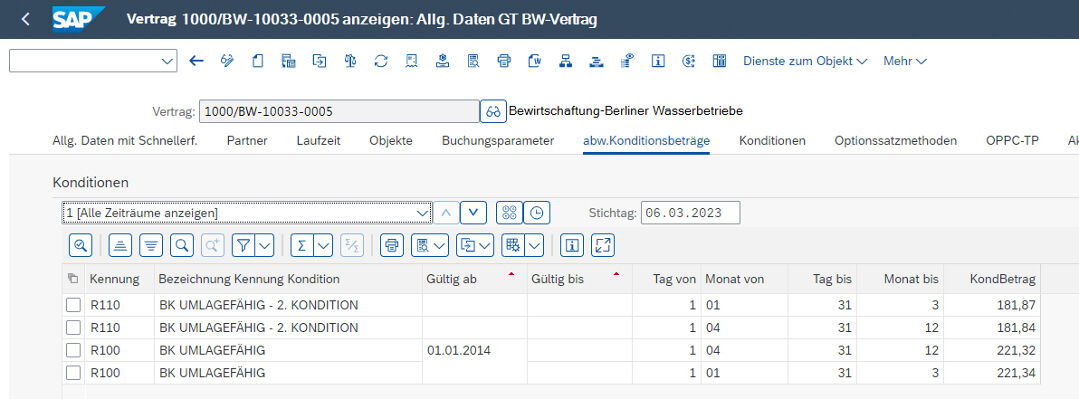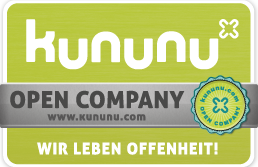PROMOS Lease-ins for business activities
Map direct costs from lease-ins for business activities transparently in SAP®
In order to reliably manage and secure real estate belonging to the real estate company, the company concludes contracts with suppliers (e.g. of energy, heating, water or cable television) and insurance providers. These contracts are frequently summarised under the term “lease-ins for business activities”. The costs that arise in connection with this can generally be transferred to the tenants through the utility statement.
The vendor-driven SAP® real estate contract is ideal for mapping the lease-ins for business activities. The installments that are regularly due for payment are listed under credit in the scope of the periodic postings (credit entry) and are then regulated through the payment run. In order to make optimal use of the lease-in for business activities, particularly with a view to preparing the utility statement, it has been enhanced in PROMOS.GT with further useful features.
Deviating partial payments: Installments are not necessarily the same amount every time; for example, at the end of the year, a one-off higher payment may become due. To avoid having to map this through time-consuming management of the conditions, PROMOS has developed a function for saving deviating partial payments. This makes it possible to save deviating payments that are due within a period directly in the contract without having to end and add conditions. Once a condition has been saved, it remains valid. During the periodic credit entry, the system automatically takes into account the deviating amounts. In the lease-in for business activities, the “Deviating Condition Rates” tab is provided for this purpose.
Direct costs of the rental object: In order to transfer costs to the tenant as part of the utility statement, these need to be posted to settlement units in SAP®. Only the “direct costs” are an exception to this. These can be used to directly allocate costs to a rental object. This function is frequently used to map the property tax, for example. This means it is no longer necessary to create an individual settlement unit for every rental object, which drastically reduces the effort required for setting up the utility cost master data and preserves transparency. PROMOS has also made it possible to post direct costs for rental objects in bulk as part of the lease-ins for business activities using a specially configured condition. This combines the benefits of direct costs with bulk posting via the vendor contract.
Further information
- Mapping of household-related services in accordance with Article 35a EStG (German Income Tax Act): In PROMOS.GT, costs for household-related services are posted to payroll accounting units created especially for this purpose in accordance with § 35a EStG. In order to classify the wage costs by wage type, the type of labour is saved directly when posting the costs. This allows the household-related services to be shown according to the type of labour. To ensure that this indicator is also automatically generated for postings that are made in the scope of the credit entry for lease-ins for business activities, PROMOS has made it possible to save the indicators described above. Thus, for wage costs, the indicator is automatically saved in the document at the time of posting. This function is also available for vendor BK01 contracts.
Your benefit
Time savings: Both the function for saving deviating partial payments and the mapping of direct costs for rental objects lead to significant time savings when it comes to managing lease-ins for business activities and utility cost master data.
Transparency: Additional tabs present the amount of the installments clearly.
Less manual effort: The PROMOS solution for mapping household-related services in accordance with Article 35a EStG completes the solution for displaying lease-ins for business activities in SAP®, meaning wage indicators no longer need to be entered in the documents manually at a later stage.
End user
-
Utility cost administrator
Technical requirements
- SAP® RE-FX
Please contact us:
PROMOS consult Projektmanagement,
Organisation und Service GmbH
Rungestraße 19
10179 Berlin-Mitte
Germany



